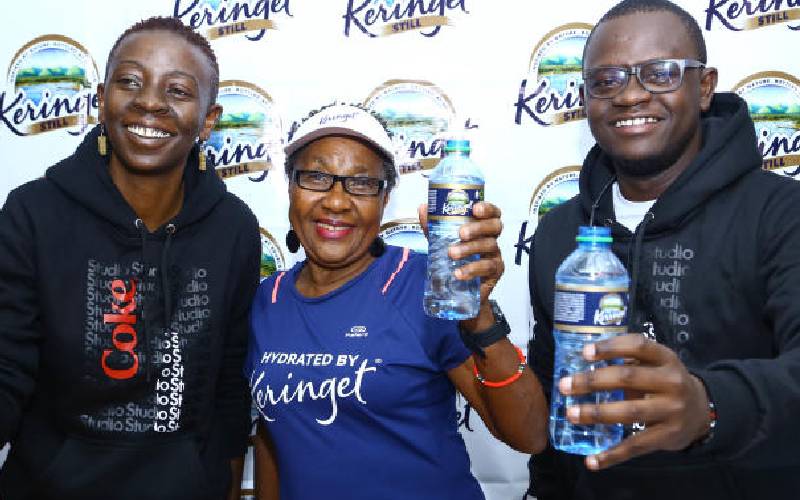×
The Standard e-Paper
Kenya’s Boldest Voice

Coca-Cola Southern and East Africa Experiential Marketing Manager Sarah Wanasakami, Joyce (Tata) Nduku and Coca Cola Southern and East Africa Experiential Manager Andrew Endovo. [Standard]
“At the age of 56, I ran a 56-kilometre marathon in South Africa as a gift to myself. I had started running at 50 and found it gave me peace,” says Joyce Nduku.